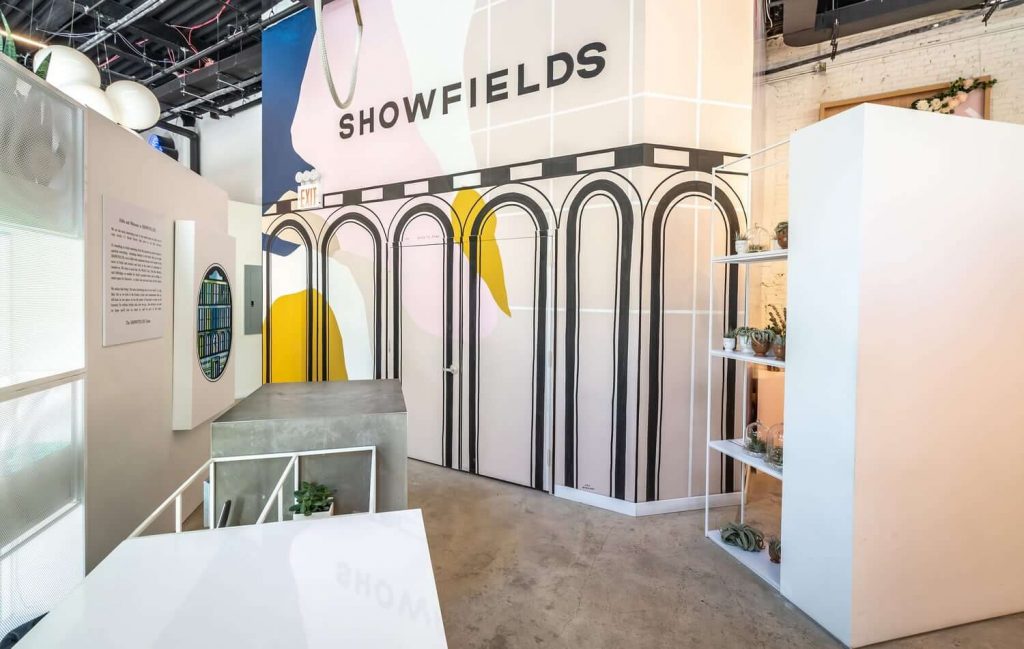«Retail Theater»
Many retail stores are increasingly creating interactive formats, opening doors for brands, allowing them to reach directly to consumers in physical retail. For example, New York-based home improvement retailer Showfields offers its House of Showfields space for an “immersive experience” in brand promotion.
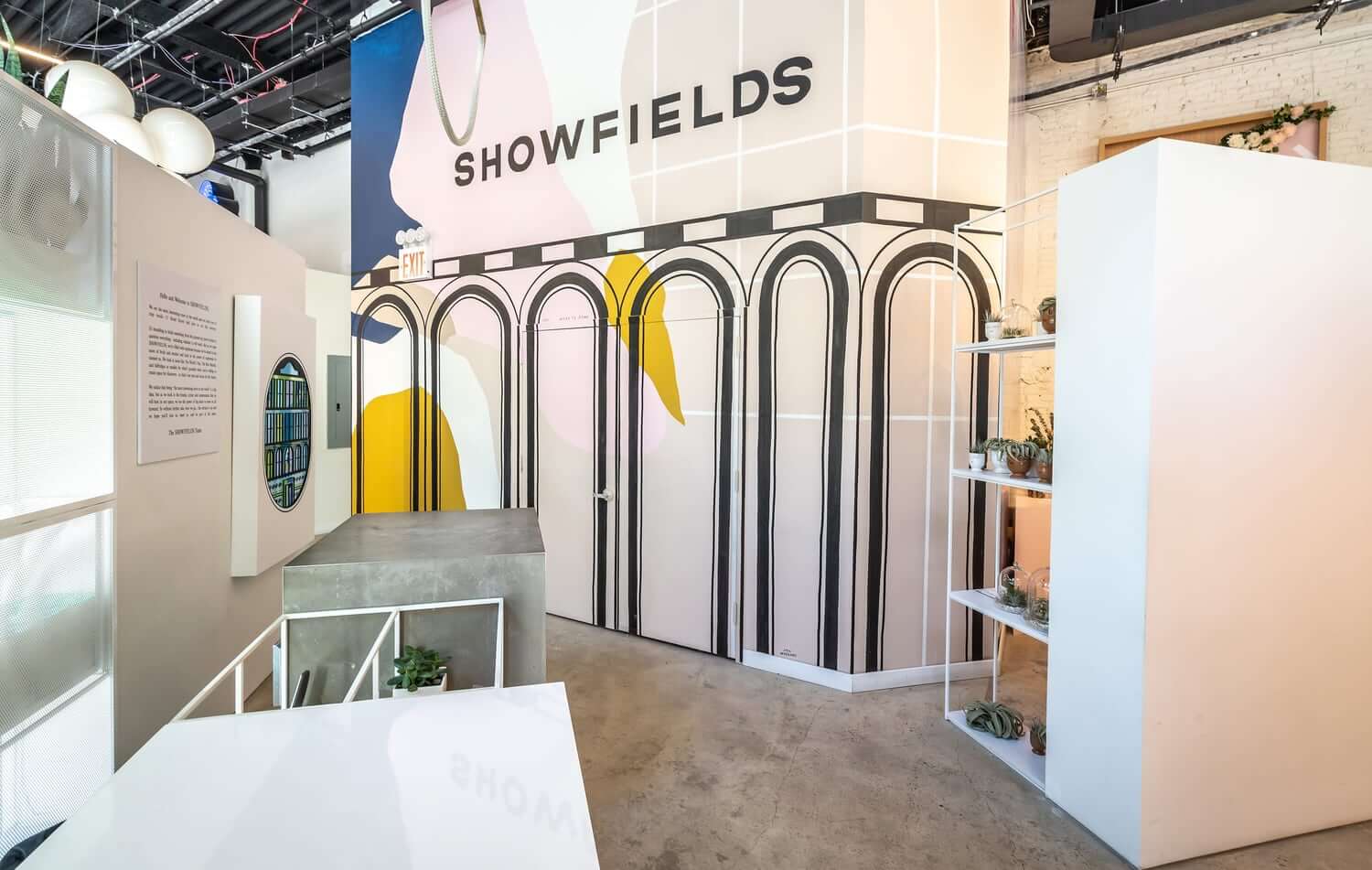
Now positioned as a “retail theater,” the retailer, with the help of hired actors, encourages customers to touch, smell, and even taste the brands on offer to better educate buyers about them. The interactive element helps the retailer to differentiate with its conceptual space from traditional department stores.
The reimagined business model has less to do with how much the brand is sold through House of Showfields and more about how emotional experiences are now created for customers. The network stimulates the desire to purchase a product, since the buyer understands the sensation of using the product better and has just tried it in action.
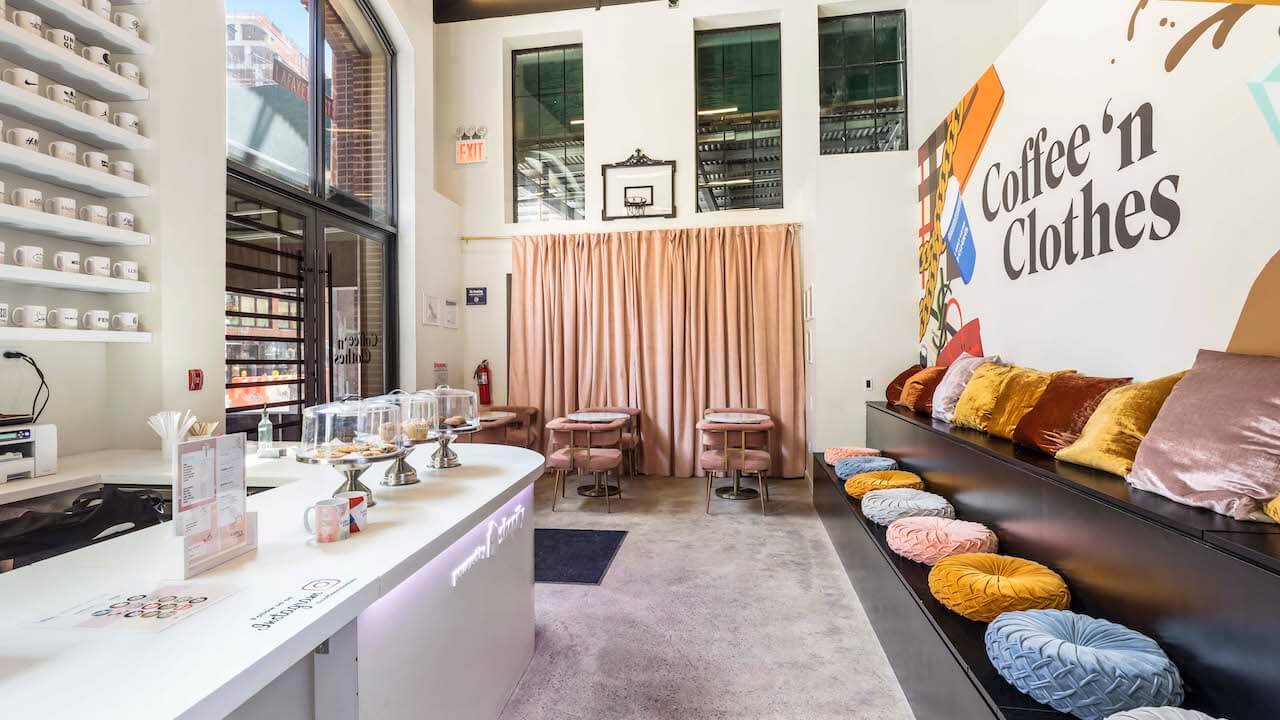
This approach is more about marketing than sales — while the density of sales in «immersive retail» is somewhat lower than in the traditional one. However, this is offset by a higher check. All 11 brands represented in the innovative retail space quadrupled their sales on average, compared with sales in the same period in “old format” stores.
In addition, the rest of the store (outside the House of Showfields) saw a 33% increase in traffic. Overall, since the opening of House of Showfields, the retailer’s sales have jumped 50%.
Depending on the area, brands pay between $ 4,000 and $ 6,000 per month in order for their product to be presented in the House of Showfields ‘retail theater’, which is an additional income for the new format retailer.
Ecology again
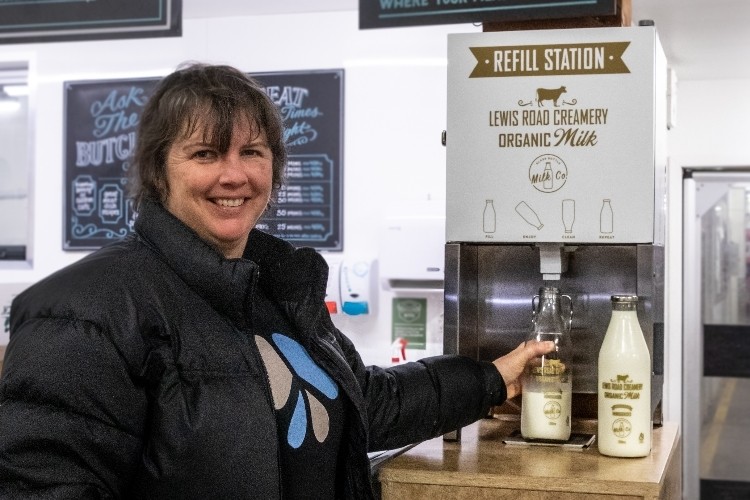
An interesting eco-initiative was announced at the end of 2020 by the dairy producer Lewis Road Creamery from New Zealand. At the request of its customers, the manufacturer decided to install stations for filling milk into glass bottles in supermarkets, completely abandoning plastic containers.
About 23,000 tonnes of plastic milk bottles are recycled in New Zealand every year. Therefore, all initiatives related to reducing the amount of plastic waste is a positive step. Moreover, such an approach can become an example of effective interaction between product manufacturers and retailers.
Milk dispensers manufactured by the New Zealand company Glass Bottle Milk & Co. originally installed at Farro stores in Auckland. Going forward, the initiative will be rolled out across the country in other grocery stores.
In-store shoppers can buy a 1-liter screw cap glass bottle for $2.58 (NZ $4) or have to bring their own bottle to fill. Lewis Road Creamery Organic Homogenized Milk costs $4 per liter.
Milk retail solutions perfectly complement our article on dairy industry trends (link to article on milk trends).
From the Internet — to retail
The lack of experience of traditional online retailers in selling their goods in classic retail opened the door to a new trading format — O2O (online-to-offline), which has become another stable trend in retail today.

KK Group (formerly KKguan), an O2O retailer based in China, offers hundreds of products imported from all over the world that were previously sold exclusively online. For the brands presented, the retailer allocates huge areas — at least 1000 sq. m. in shopping centers of category A throughout the country.
There are three main product categories in KK supermarkets: food and snacks, cosmetics and skin care products, and general goods.
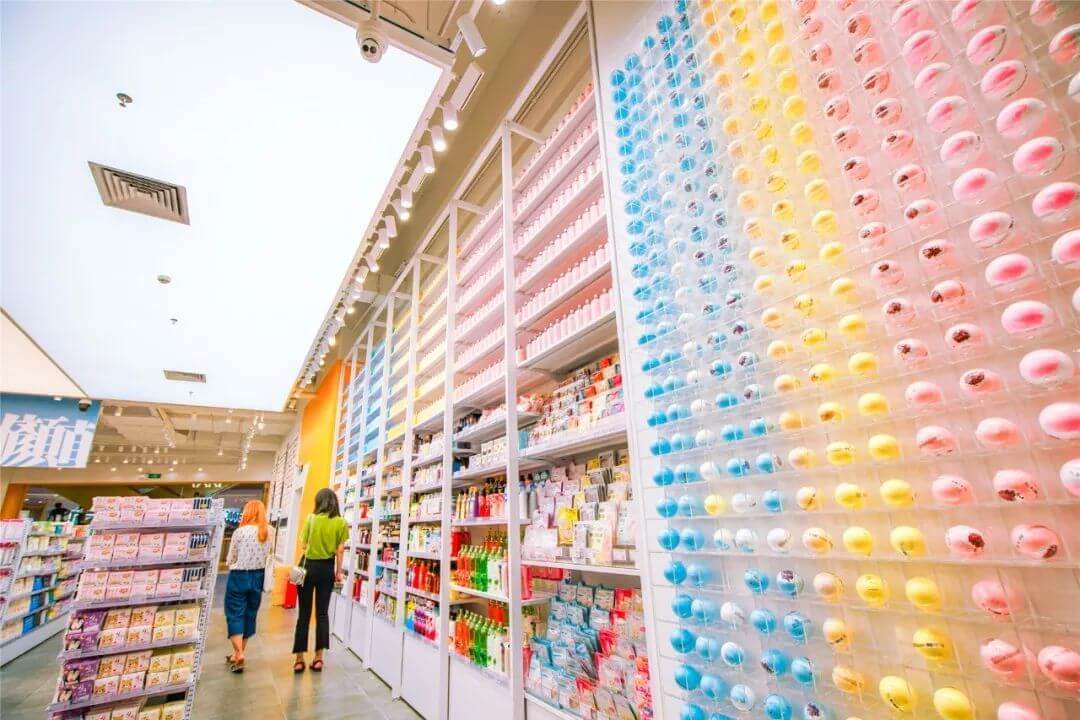
KK has overseas joint warehouses in Japan, South Korea, Australia, UK, USA and other regions. In more than 30 cities in China, franchise stores have been opened.
The assortment changes regularly, depending on demand. This can be quite clearly established, again thanks to the data on online sales of brands represented on the network.
This format is in demand among investors. In the summer of 2020, in the midst of a pandemic, the retailer completed a new round of funding worth about 1 billion yuan ($ 141.6 million) from a pool of investors, including large investment funds such as CMC Capital.
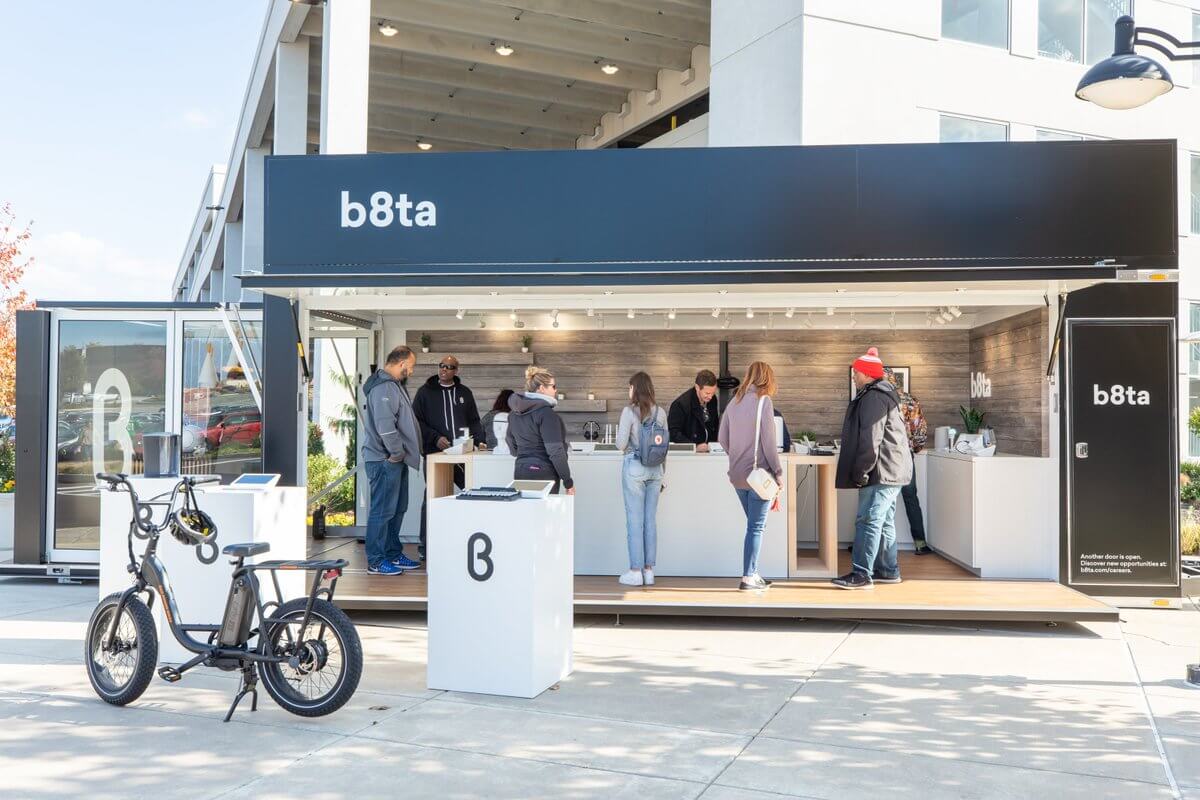
B8ta, a multibrand chain with stores from San Francisco to Dubai, trades home, audio-video, FMCG, and health products using its retail-as-a-service platform to showcase brands in physical retail.
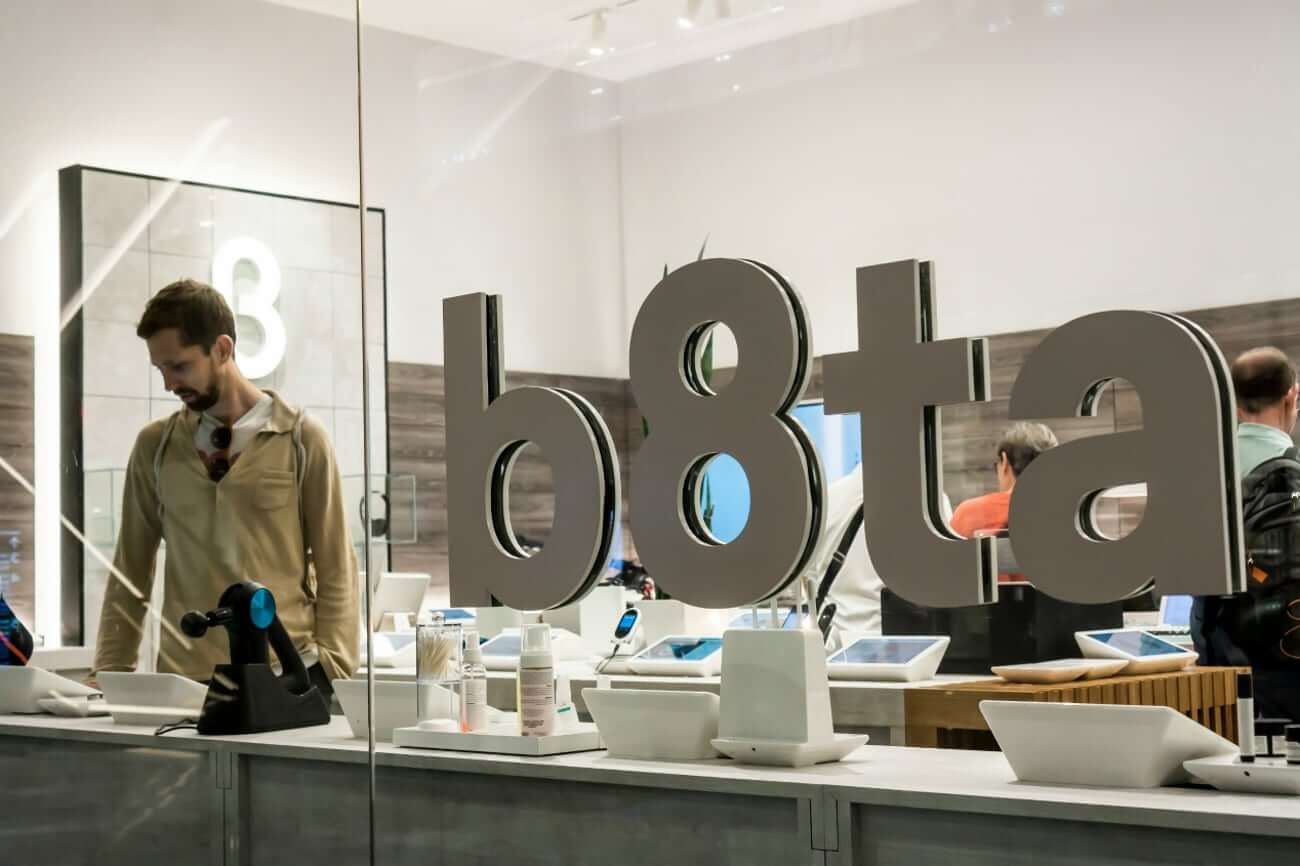
The company operates 24 of its own stores as well as Toys R Us online stores, partnered with Macy’s and launched a new platform called Ark Marketplace that retailers can use to operate their own retail platforms as a service in their stores.
Mobile Retail

Since the launch in 2017, the Cargo app has collaborated effectively with a number of big brands such as Grab, Coca-Cola and SeatGeek, accumulating decent expertise in impulse trading.
In 2018, Cargo launched the Cargo Store app in partnership with UBER, which laid a solid foundation for transit trade. Its goal is to sell products such as snacks, chocolates, chewing gum, chargers, drinks and beauty products to people who travel long distances, such as to and from the airport, by ordering them directly from the passenger compartment.
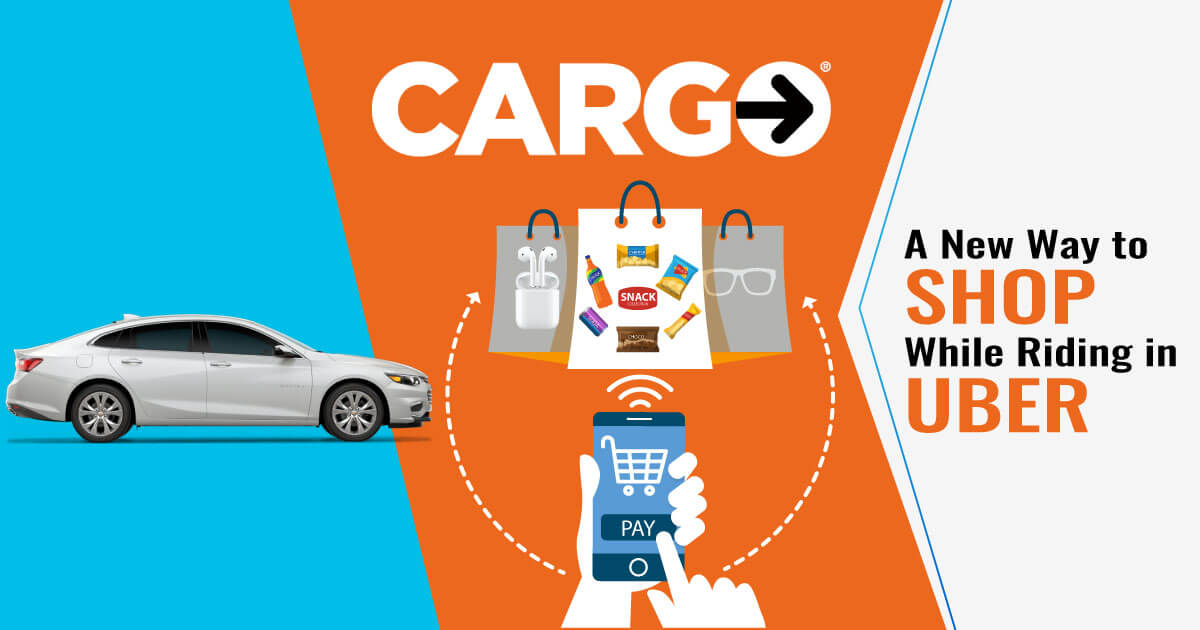
To purchase items through the Cargo Store, you need to download an app from the App Store or Google Play Store, and then use the Uber app to scan the QR code on the Cargo Box installed in your car console. Then the passenger can start shopping. Once completed, Cargo will deliver the goods directly to the passenger’s home within two to five working days at no additional cost.
All three parties are interested in making a purchase: brands increase their sales, the driver receives 25% of the purchase amount, and the passenger receives 10% of the amount spent in the form of Uber Cash, to pay for future Uber rides or for the next purchase through the Cargo app.
For brands, Cargo offers the opportunity to sample and obtain information about consumers who use the company’s service.
Robots Instead of Humans
Delivery startups that use robotics to close the last mile between store and customer are becoming the new love of investors.
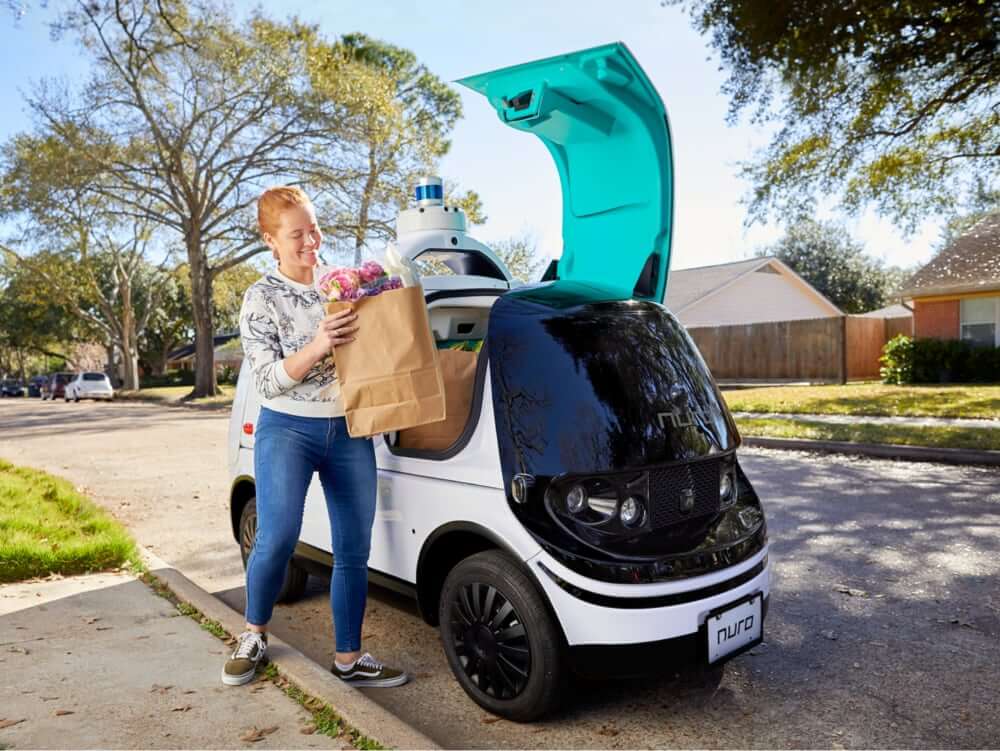
Startup Nuro Inc plans to start delivering orders to customers using self-driving cars from 2021. In 2020, the startup tested its R2 vehicles on California roads, and has already received approval from the State Department of Motor Vehicles (DMV) to use its autonomous vehicles for delivering goods in urban environments.
Nuro vehicles are already delivering goods to customers from Kroger and Walmart stores.
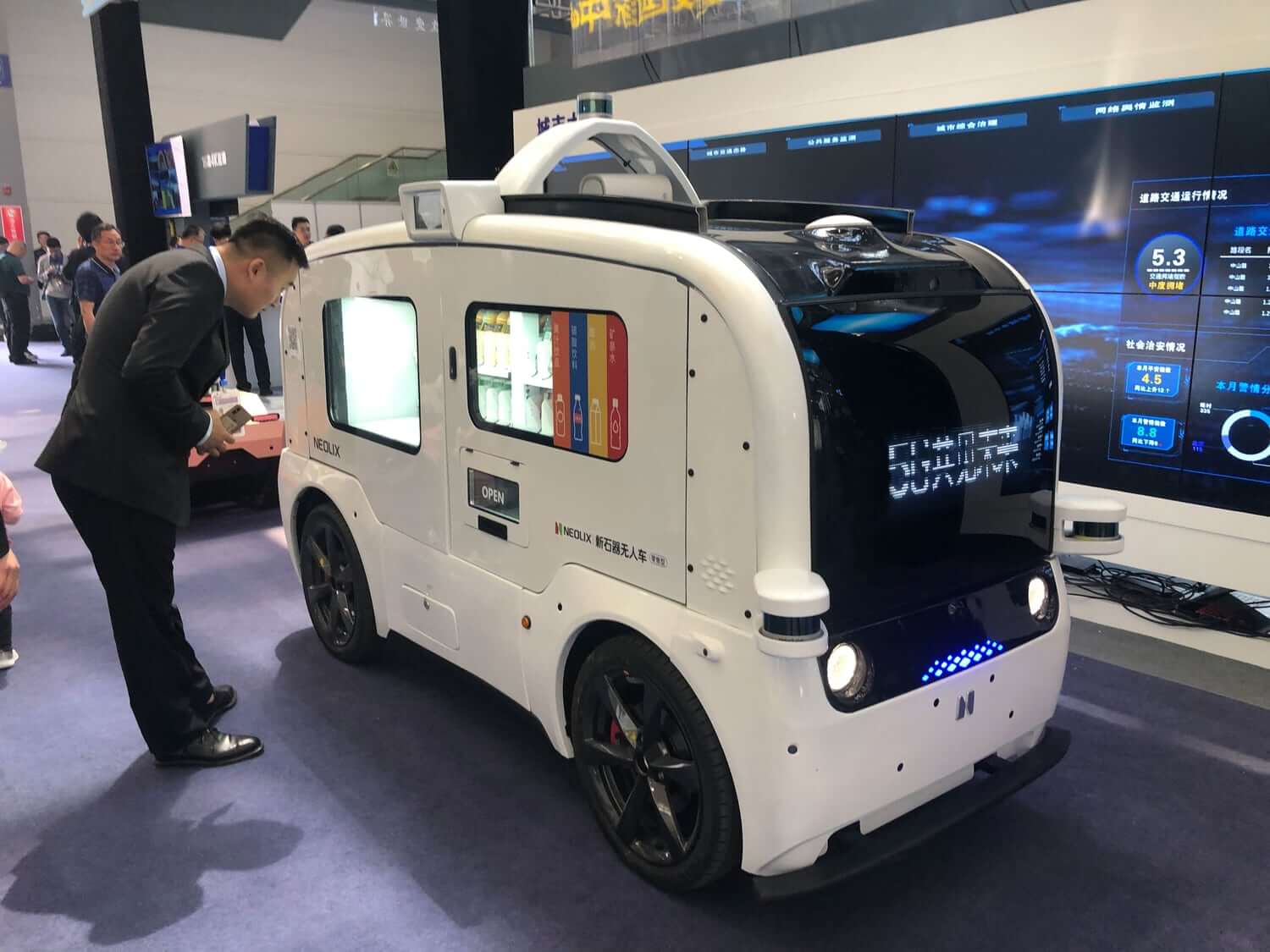
China-based manufacturer Neolix makes autonomous commercial vehicles that deliver goods in the Chinese capital. Huawei, Alibaba, Meituan-Dianping and other large retailers are among the company’s clients. Neolix says it has sold 225 of its drones in the past two years.
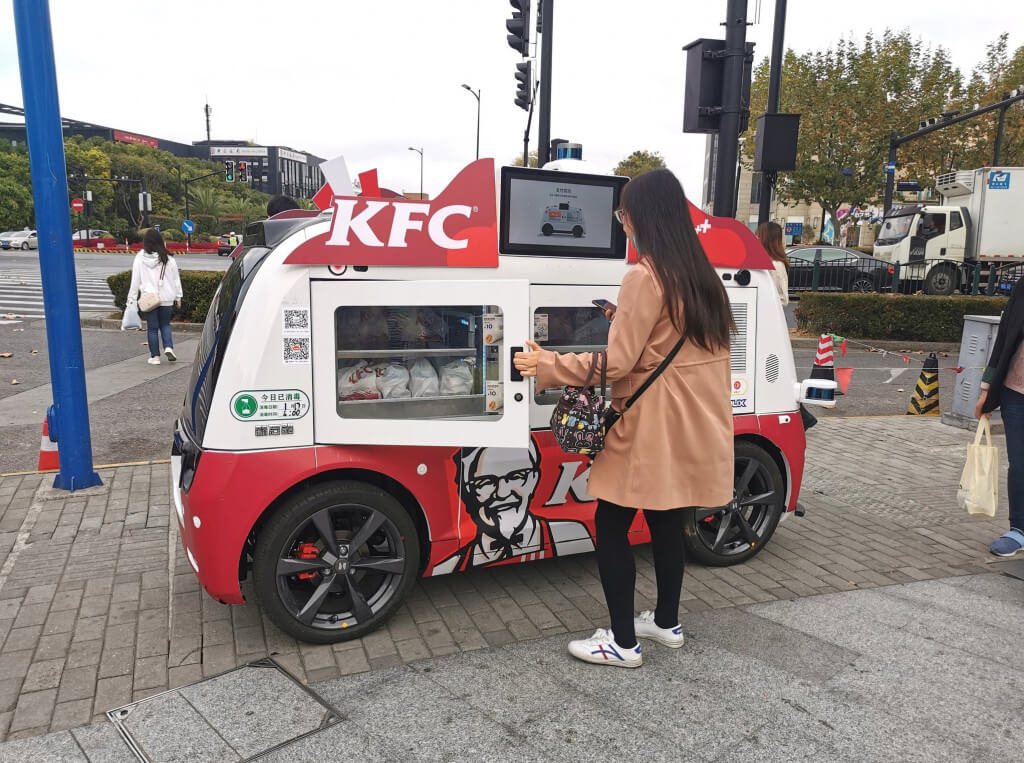
The company expects that its cars will also be of interest to food delivery services, and judging by the fact that KFC branded cars began to appear in Beijing, the Neolix models were not only to the taste of retail players.
The transformations of the retail format are proceeding rather quickly. In 2021 we will definitely how the changes in the strategies of manufacturers in the direction of working with customers will lead to the adjustment of the retail formats we are used to. The process is curious to watch at, as well as to take part in.
